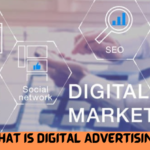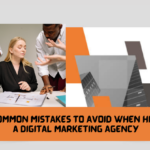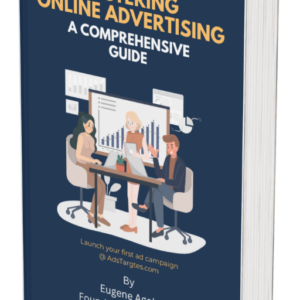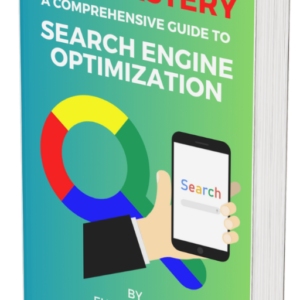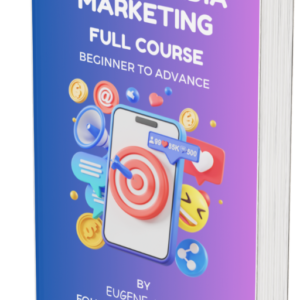I was in the same situation as you a few years back. I had recently launched my own company and understood that in order to increase my internet visibility and connect with my target market, I required professional assistance. I was able to locate a trustworthy digital marketing agency after conducting some research and speaking with other business owners. In this comprehensive post, I guarantee to share with you my greatest tactics.
Let me tell you, my business saw an entirely new direction as a result of working with the digital marketing agency. Right from the start, their team dedicated time to comprehending my objectives, intended audience, and distinctive selling features. They developed a personalized digital marketing plan that encompassed email campaigns, content creation, social media marketing, and search engine optimization (SEO).
As you keep reading, you will learn the basic services of a digital marketing agency and my best seven strategies to find a reliable firm to achieve your marketing objectives. Let’s get started!
What is a Digital Marketing Agency?
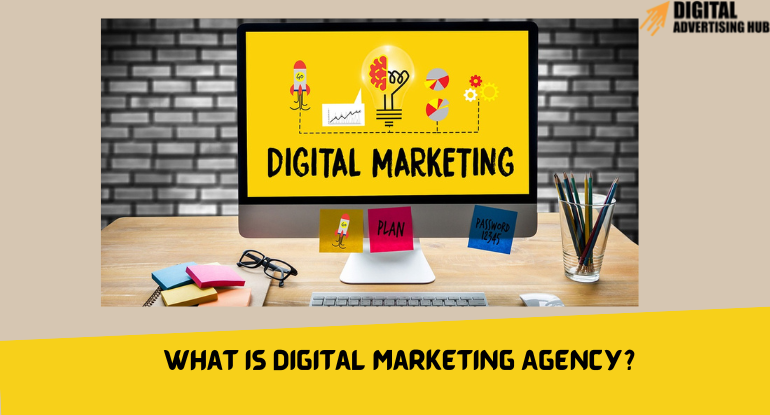
A digital marketing agency is a type of professional services firm that focuses on assisting businesses in using different internet platforms to accomplish their marketing objectives. They provide an extensive array of services to improve internet presence, draw in new customers, and increase sales. They essentially serve as a strategic partner, helping you to navigate the challenging world of digital marketing.
What Services Do Digital Marketing Agencies Provide?
Digital marketing agencies typically offer a comprehensive suite of services, including:
#1. Social Media Marketing
• Community management: interacting with users on social media, leaving comments, and fostering connections.
• Content Creation and scheduling: creating and sharing excellent material on social media sites while making sure to publish on a regular basis.
• Paid advertising: Using social media platforms to reach a larger audience and accomplish particular objectives by running targeted adverts.
• Influencer marketing: Collaborating with prominent figures in your sector to sell your company and connect with their audience.
• Social media analytics: Monitoring and evaluating important indicators to gauge how well your efforts are doing on social media.
#2. Search Engine Optimization (SEO)
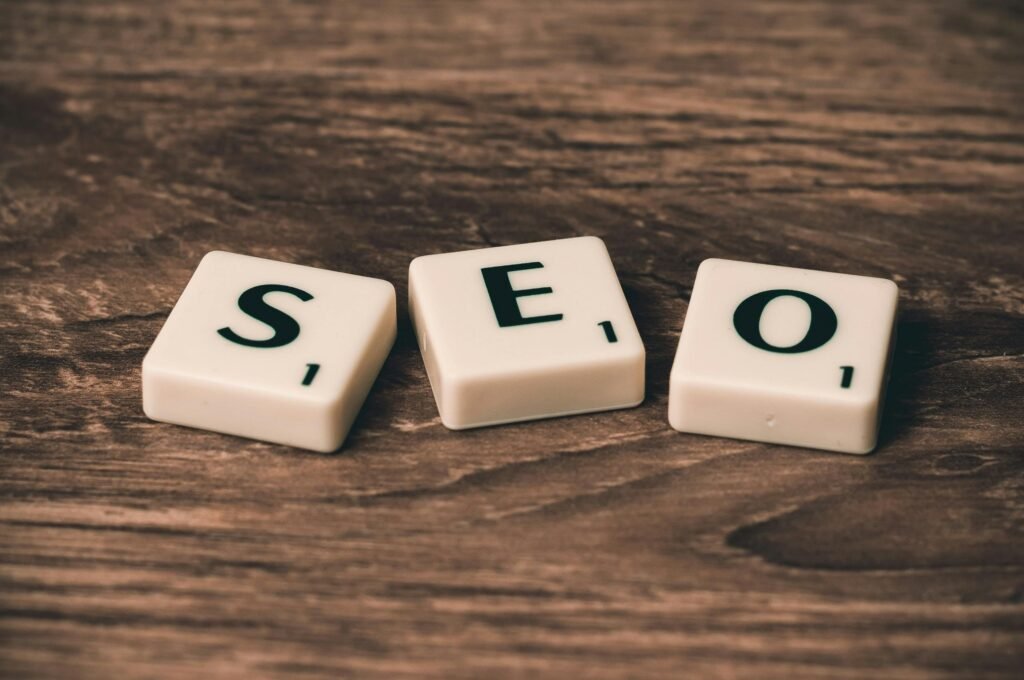
• On-page optimization: enhancing the content, architecture, and coding of your website to raise its search engine rating. Read how a beginner can learn on-page SEO.
• Off-page optimization: Creating solid backlinks from other trustworthy websites to your website.
• Keyword research: Finding pertinent terms and expressions that people in your target market are using to look for.
• Link building: Getting other relevant websites to link back to your website. Leveraging Natural Backlinks For SEO Success.
• Technical SEO: Making sure your website is both search engine optimized and sound technically.
#3. Pay-Per-Click (PPC) Advertising
• Google Ads: displaying sponsored links on search engine results pages for Google.
• Social media advertising: making and promoting advertisements on Twitter, Facebook, and Instagram.
• Display advertising: Displaying advertisements on internet websites and applications.
#4: Content Marketing
There are 10 benefits of content marketing you must not miss. Hence, an excellent digital marketing agency provides the following content marketing services:
• Blog writing: Producing thought-provoking and captivating blog entries to draw in and involve your intended readership.
• Article creation: Write articles that will be posted on other websites to raise awareness of your business.
• E-books: Writing in-depth manuals or analyses on subjects related to your line of work.
• Whitepapers: Writing comprehensive reports or research papers on particular subjects.
• Infographics: Producing eye-catching visuals that succinctly and captivatingly present information.
#5. Email Marketing
• Newsletter campaigns: Consistently providing your subscribers with insightful articles and updates via email.
• Automated email workflows: Creating lead nurturing and conversion-boosting automated email sequences.
• A/B testing: To improve your email marketing, test out various email subject lines, content, and layout.
#6. Web Development and Design
• Website creation: creating an aesthetically pleasing and intuitive website through design and development.
• User experience (UX) design: Making sure your website is user-friendly and offers a satisfying experience.
• Website optimization: enhancing your website’s performance, search engine optimization, and mobile friendliness.
#7. Reporting and Analytics
• Tracking website traffic: Keeping an eye on the actions of website users.
• Measuring campaign performance: Monitoring and evaluating important indicators to determine how successful your marketing initiatives are.
• Analyzing consumer behavior: Knowing how consumers engage with your brand and website.
#8. Conversion Rate Optimization (CRO)
• Optimizing website elements: modifying calls to action, landing pages, and checkout procedures on your website to increase conversions.
#9. Managing Your Reputation
• Managing and keeping an eye on your internet reputation: keeping tabs on your online reputation and responding to criticism or reviews.
A digital marketing agency’s exact services may change based on its size, level of experience, and clientele’s demands.
It’s important to note that while many agencies offer a wide range of services, specializing in certain areas can often lead to better results. Some agencies may excel in SEO, while others may have a strong focus on social media marketing or content creation.
7 Best Strategies to Find a Reliable Digital Marketing Agency
#1. Define Your Needs and Goals
Understanding your company’s goals clearly is essential before searching for a digital marketing agency. What goals do you have for using internet marketing? Are you trying to boost sales, create leads, or raise brand awareness? Setting goals will enable you to focus your search and select an agency that best suits your requirements.
Determining your target audience is just as crucial as defining your goals. With your marketing initiatives, who are you aiming to reach? You may more successfully customize your messaging and techniques if you have a thorough understanding of the characteristics, interests, and habits of your target clientele.
Lastly, it’s critical to establish a reasonable budget for any online advertising initiative. Take a look at your whole marketing budget and set aside some for digital projects. This will assist you in figuring out the range of services you can afford and guarantee that the costs quoted by the agency match your expectations.
#2. Research and Shortlist Potential Agencies
Now that your objectives and target market have been established, it’s time to look into possible digital marketing firms. Here are a few successful tactics:
- Use internet review sites and directories: Digital marketing companies may be found thoroughly reviewed and rated on websites such as Clutch, GoodFirms, and G2. These systems offer insightful data on areas of specialization, customer satisfaction, and agency success.
- Investigate networks and associations for the industry: The American Marketing Association (AMA) and the Digital Marketing Association (DMA), for example, frequently maintain directories of respectable businesses. Additionally, these groups may offer beneficial tools and networking possibilities.
- Ask for references and referrals: Speak with coworkers, business associates, or industry insiders who have had good luck working with digital marketing firms. Personal referrals may be quite helpful in locating a reliable and trustworthy partner.
- Make Use of Google My Business: This is a useful resource if you’re trying to find local agencies. To find local firms, conduct a search for “digital marketing agency” in your region. Search for companies that have a great internet reputation, active profiles, and reviews.
#3. Evaluate Agency Experience and Expertise
After you’ve narrowed down your list of possible agencies, it’s crucial to learn more about their background and specialization. Observe the following:
- Portfolios and case studies: Examine the agency’s prior work and how well they accomplished objectives that align with your own. Take note of the outcomes they produced, the tactics they used, and the endorsements from clients.
- business specialization: Seek for agencies with knowledge of your particular field or business. By doing this, you can be sure that they are aware of the particular difficulties and possibilities that your company faces.
- Credentials and qualifications of the team: Examine the qualifications and experience of the agency’s staff. Seek out people who have the necessary credentials, such as Google Ads Certification.
#4. Assess Agency Communication and Collaboration
Collaboration and efficient communication are critical to the success of your relationship with a digital marketing firm. Here’s something to think about:
- Initial contact and responsiveness: Evaluate the agency’s communication abilities and the speed at which they address your questions. A timely and polished answer is a reliable sign of their communication style in general.
- Value alignment: Verify that the agency’s principles and workplace culture complement your company’s core values. Collaborating with an organization that aligns with your principles can result in a more efficient and harmonious partnership.
- Cooperation and openness: Talk about how the organization will provide you regular information and include you in decision-making. Establishing trust and ensuring that the agency shares your objectives may be achieved via open and cooperative communication.
#5. Consider Agency Size and Structure
Your experience and the quality of service you receive can be greatly impacted by the size and organizational structure of a digital marketing firm. Here are some things to think about:
- Small, medium, or big agency: While larger agencies could have a wider variety of resources and experience, smaller agencies might provide more individualized care. When selecting an agency size, take into account your desired degree of personal attention, project complexity, and budget.
- In-house vs. outsourced teams: While some agencies employ teams internally, others contract out certain tasks. Consider the benefits and drawbacks of each strategy in light of your unique requirements and preferences.
- Organizational structure: Recognize the decision-making process and organizational structure of the agency. Having a well-defined hierarchy and duties may facilitate effective communication and project management.
#6. Request Proposals and Compare Offerings
It is time to solicit bids from the agencies you have shortlisted, detailing their suggested strategy, methods, and deliverables. The following are essential components of a proposal to consider:
- Clearly defined goals: Ascertain that the agency is aware of your objectives and the steps they will take to fulfill them.
- Strategies and tactics: The proposal should include a breakdown of the precise strategies and techniques the firm will use, such as email marketing, social media advertising, content marketing, and SEO, to meet your goals.
- Timelines: Keeping track of work and managing expectations is made easier with a well-defined timetable that includes important milestones and the estimated length of the project.
- Budget: A thorough accounting of all expenses, including hourly rates, set fees, and any supplemental charges, should be included in the proposal.
- Key performance indicators (KPIs): To measure the campaign’s effectiveness, the agency should suggest quantifiable KPIs like website traffic, lead creation, or sales.
After receiving proposals from many organizations, thoroughly evaluate each one to choose which best suits your requirements. Think at things like cost, experience, knowledge, and how well the agency fits your objectives. Never be afraid to haggle over terms of the contract, including price and service scope.
#7. Ask for Client References and Conduct Interviews

It’s critical to perform comprehensive due diligence by contacting references and speaking with past clients after assessing offers and comparing services. How to do it is as follows:
- Ask for customer references: Request references from prior clients from the agency. Make sure you ask for a range of clients, such as those in related fields or with comparable project needs.
- Hold interviews: Get in touch with the references and inquire about their involvement with the agency. Find out about the agency’s ability to communicate, responsiveness, output quality, and general level of satisfaction.
- Evaluate customer satisfaction: Analyze the clients’ contentment with the agency’s offerings and their track record of keeping their word. Seek for compliments on the agency’s proficiency, demeanor, and output.
You may learn a lot about the agency’s standing, dependability, and track record of fulfilling agreements by contacting referrals from past clients and interviewing current clients. This phase is essential to choose a digital marketing firm that will support you in reaching your company objectives and helping you make an educated choice.
7 Unique Qualities to Look for in a Reliable Digital Advertising Agency
Apart from the previously mentioned tactics I used to find a reliable digital marketing agency, there are some distinctive attributes that you ought to search for in a trustworthy digital advertising agency:
#1. Data-Driven Approach: A credible agency should have a data-driven approach, utilizing analytics and insights to assess the efficacy of their tactics. Key performance indicators (KPIs) should be monitored and analyzed by them in order to optimize campaigns and produce outcomes.
#2. Creativity and Innovation: To stand out in a competitive market, digital advertising needs to be creative and innovative. Seek out a creative firm that can create memorable and captivating ads that speak to your target market.
#3. Adaptability: Since the digital world is always changing, it’s critical to collaborate with an agency that can keep up with the latest developments in both technology and trends. To remain ahead of the curve, they must to be able to modify their tactics as circumstances dictate.
#4. Accountability and Transparency: A trustworthy agency must take responsibility for its actions and be open and honest about its workings. They must to be transparent in their communication, provide you regular updates, and be available to answer any queries you might have.
#5. Integrity and Ethics: Verify that the agency carries out its digital advertising efforts in accordance with moral principles. Steer clear of organizations that use misleading or dishonest practices.
#6. Scalability: You require an agency that can adjust their services to match your changing demands if your company is expanding. Seek for an agency that can manage higher budgets and workloads.
#7. Customer-oriented Focus: Your requirements and objectives should come first for a trustworthy agency. They ought to be prepared to hear what you have to say and change as needed to make sure you’re happy.
Conclusion
Selecting the best digital marketing firm may require a substantial financial outlay, but the benefits may be enormous. You may improve your chances of choosing a partner who is in line with your company objectives and produces outstanding outcomes by implementing the tactics described in this article.
By taking these actions, you may choose wisely and establish a fruitful working relationship with a digital marketing agency that will support your company’s goals and enable it to prosper in the highly competitive environment of the internet.
Did you enjoy the article? Please share your thoughts in the comments and subscribe to our newsletter. I look forward to sharing more informative industry strategies with you.






